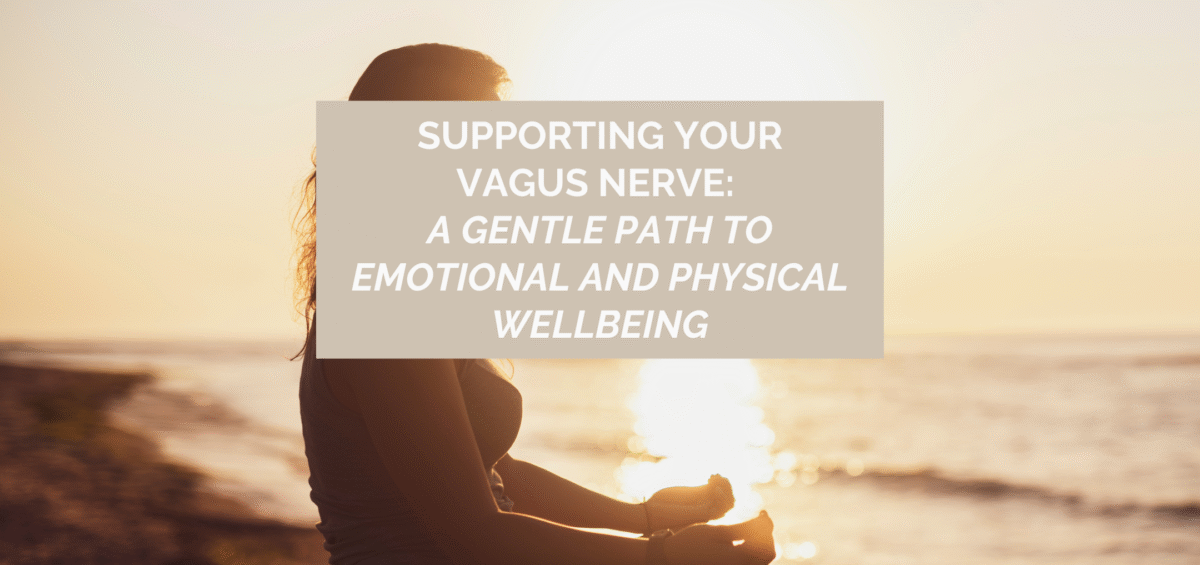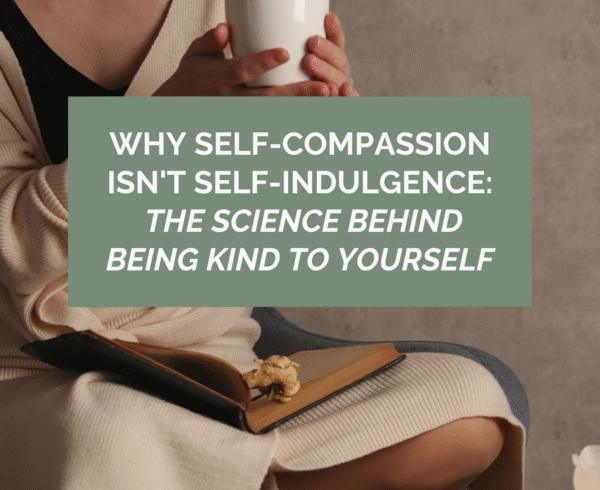Have you ever felt butterflies in your stomach before a big moment? Or a tight chest when you’re stressed? These sensations aren’t just “in your head”, they’re your nervous system speaking. And at the heart of it all is something called the vagus nerve.
As a holistic and integrative psychologist, I often talk to clients about how our mind and body are deeply connected. One of the most powerful ways to support emotional healing is by caring for our nervous system and the vagus nerve plays a central role in this process.
Trauma lives in the body
Trauma isn’t just stored in the mind, it lives in the body. In the book Trauma and the Body, Pat Ogden and Clare Pain explain how past experiences, especially overwhelming or unsafe ones, can leave our nervous system stuck in survival mode, even long after the threat is gone.
Many people tell me, “But that happened years ago.” And yet, their body still reacts as if it’s happening now. A smell, a tone of voice, or even silence can trigger an internal alarm. The heart races. Muscles tense. The stomach clenches. You freeze, flee, or fight, not because you’re overreacting, but because your body remembers.
In somatic therapy, we work gently with the body’s language – sensation, movement, breath – to help it find safety again. We don’t just talk about what happened. We invite your body into the present moment, where healing can begin.
Why the vagus nerve matters
The vagus nerve is the longest cranial nerve in your body and one of the most powerful. It forms a direct communication pathway between your brain and your gut, as well as your heart, lungs, and other organs.
It plays a central role in your parasympathetic nervous system, what we often call the “rest and digest” system, helping your body slow down, feel safe, and heal.
When your vagus nerve is well-regulated, your digestion flows more smoothly, your mood feels more balanced, and you’re better able to handle stress and feel safe in your body. But when it’s underactive, overwhelmed, or disrupted, which can happen with chronic stress, trauma, or inflammatory conditions, you might notice symptoms like bloating, irregular bowel movements, brain fog, anxiety, poor sleep, or even flares of IBS.
Supporting vagus nerve health is one of the most powerful, yet often overlooked, ways to care for both your gut and your mind. And the good news? There are gentle, natural ways to activate it.
Gentle ways to support your vagus nerve:
These practices may seem simple, but they can have a profound effect over time. Think of them as ways to remind your body: You are safe now.
- Slow, deep breathing: Try inhaling for 4 counts, and exhaling for 6 to 8. Long, slow exhales that encourage deep belly breathing, where the belly inflates and relaxes, stimulates the vagus nerve and helps your system shift from fight-or-flight into calm.
- Cold exposure: A splash of cold water on your face or a 30-second cool shower can reset your nervous system and bring you back into your body.
- Humming or singing: The vagus nerve runs through your vocal cords. Gentle humming, chanting, or singing can stimulate it and create a calming, grounded effect.
- Somatic movement: Practices like slow yoga, mindful walking, or gentle stretching help discharge tension and reconnect you with your body’s inner rhythms.
- Connection and co-regulation: Being with someone who feels safe – a friend, therapist, pet, or even yourself – is one of the most powerful ways to regulate your nervous system. We heal in connection.
A reminder from your body
If you’ve experienced trauma or long-term stress, your body might need time to feel safe again. That doesn’t mean you’re broken, it means your nervous system has been doing its best to protect you.
These practices aren’t quick fixes. They’re invitations. Little ways of telling your body: You’re safe now. You can rest.
If you’d like to explore this more deeply, especially if you’re dealing with anxiety, dissociation, or emotional overwhelm, working with a somatically trained or trauma-informed therapist like me, can support that journey.
Your nervous system isn’t the problem — it’s the pathway.
Let’s take care of it.
Written by Psychologist Violeta












Leave a Comment